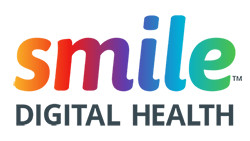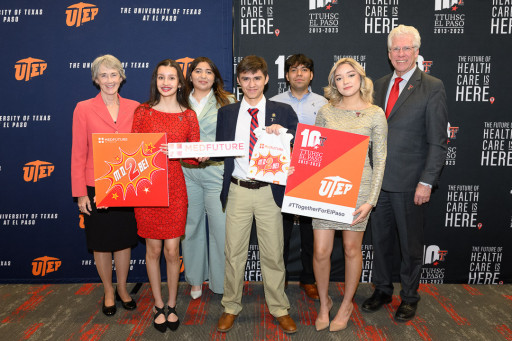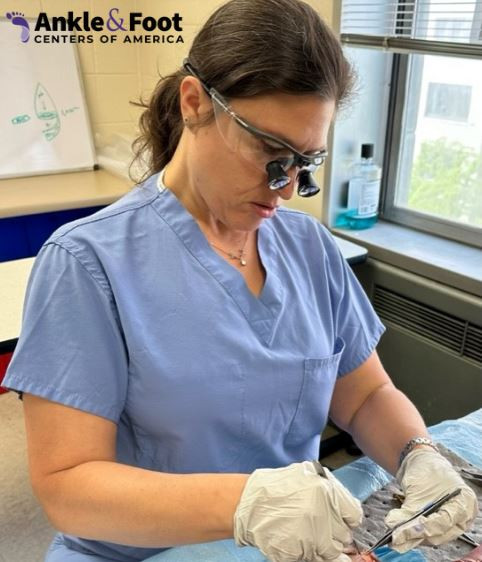
Smile Digital Health and HealthLX Announce Partnership and Provide Two Innovative FHIR Solutions

 Smile and HealthLX collaborate to expedite FHIR-based CMS compliance and enterprise interoperability solutions.
Smile and HealthLX collaborate to expedite FHIR-based CMS compliance and enterprise interoperability solutions.
TOR…


 Smile and HealthLX collaborate to expedite FHIR-based CMS compliance and enterprise interoperability solutions.
Smile and HealthLX collaborate to expedite FHIR-based CMS compliance and enterprise interoperability solutions.
TOR…


 Smile and HealthLX collaborate to expedite FHIR-based CMS compliance and enterprise interoperability solutions.
Smile and HealthLX collaborate to expedite FHIR-based CMS compliance and enterprise interoperability solutions.
TOR…
Focus is on Bridging the Gap for Long-Term Care Facility Residents
TACOMA, Wash., June 1, 2023 (Newswire.com)
–
…

Financial Assistance From The Assistance Fund Now Available for Eligible People Living With APDS
ORLANDO, Fla., May 30, 2…


 Pathway program admits exceptional local and first-generation college students to the undergraduate pre-med program at UTEP and medical degree program at the TTUHSC El Paso Foster School of Medicine directly from high school.
Pathway program admits exceptional local and first-generation college students to the undergraduate pre-med program at UTEP and medical degree program at the TTUHSC El Paso Foster School of Medicine directly from high school.

EL PASO, Texas, May 30, 2023 (Newswire.com)
–
The University of Texas at El Paso and Texas Tech University Health Sciences Center El Paso unveiled MedFuture, a joint initiative that will create a pathway for highly qualified students in our Borderplex to be admitted to college and medical school in their hometown of El Paso right out of high school.
“UTEP has a very strong pre-med program,” said Heather Wilson, UTEP President. “It makes sense for UTEP and TTUHSC El Paso to work together to help El Paso retain the best and brightest future physicians in the region.”
The MedFuture initiative is the first of its kind in West Texas, with collaboration from two independent universities on one path to a medical education. Its groundbreaking programming will not only cultivate a deeper interest and understanding of the field but has the potential to change the life trajectories of local students and their families as they embark on a path to high-income earning careers in medicine. Four of the five students in MedFuture’s inaugural cohort are first-generation college students.
“We’re pleased to partner with UTEP to provide an educational pathway for talented local students who dream of attending medical school and serving patients in their hometown,” said Richard Lange, M.D., M.B.A., president of TTUHSC El Paso and dean of the Foster School of Medicine. “MedFuture will address the physician shortage in the region while meeting the health care challenges faced by our residents.”
The MedFuture partnership recognizes highly qualified seniors in high school who have expressed an interest in science and medicine — and a strong commitment to serve the region upon graduating.
While completing their baccalaureate degrees at UTEP, MedFuture students receive foundational pre-med support and enroll in the UTEP PREP summer program to set a solid foundation for their college career. Program opportunities include pre-health advising and mentorship, paid Medical College Admissions Test (MCAT) preparation programs, paid summer research experiences and health care internships at TTUHSC El Paso’s Foster School of Medicine.
“Our goal is to address our region’s severe physician shortage by educating the next generation of medical professionals, and promoting a medical workforce that reflects our community,” said Gail Arnold, Ph.D., assistant dean of the College of Science and director of the Medical Professions Institute at UTEP.
A joint committee of UTEP and TTUHSC El Paso’s faculty and staff selected the inaugural cohort of students for admission. They are:
Piñon was born with a heart defect and has undergone multiple surgeries – including open-heart surgery. The experience gave her an understanding about her heart and how it worked. Her passion for practicing medicine locally grew after learning of TTUHSC El Paso’s mission to keep students in the region after graduation.
“As a patient, I have to fly out to Houston for any treatment,” Piñon said. “Not only is El Paso underserved, but it’s underrepresented. Being part of this program means I can continue my education here and stay involved in our community.”
“We’re excited to provide mentorship and professional development opportunities, while exposing them to the field of medicine through scribing and shadowing internships,” said Cynthia Perry, Ph.D., Associate Academic Dean for Admissions at the Foster School of Medicine. “MedFuture will help us grow our own future physicians and provide the resources to potentially change their life trajectories.”
About Texas Tech University Health Sciences Center El Paso
TTUHSC El Paso is the only health sciences center on the U.S.-Mexico border and serves 108 counties in West Texas that have been historically underserved. It’s a designated Title V Hispanic-Serving Institution, preparing the next generation of health care heroes, 48% of whom identify as Hispanic and are often first-generation college students.
About The University of Texas at El Paso
The University of Texas at El Paso is America’s leading Hispanic-serving university. Located at the westernmost tip of Texas, where three states and two countries converge along the Rio Grande, 84% of our 24,000 students are Hispanic, and half are the first in their families to go to college. UTEP offers 169 bachelor’s, master’s and doctoral degree programs at the only open-access, top-tier research university in America.
Contact Information:
Marty Otero
Media Relations Specialist – National Media
915-215-6017
Original Source:
UTEP and TTUHSC El Paso Launch MedFuture Partnership to Train El Paso’s Next Generation of Physicians


 Dr. Jennifer Monaco, a podiatrist in Columbus, GA, Enhances her Expertise in Limb Reconstruction and Peripheral Nerve Surgery through Orthoplastic Techniques.
Dr. Jennifer Monaco, a podiatrist in Columbus, GA, Enhances her Expertise in Limb Reconstruction and Peripheral Nerve Surgery through Orthoplastic Techniques.
…
In a strategic move to further enhance its service offering, MedVenture Health has announced the acquisition of Canyon Labs to add regulatory and laboratory testing services to its deep portfolio.
…
In a strategic move to further enhance its service offering, MedVenture Health has announced the acquisition of Canyon Labs to add regulatory and laboratory testing services to its deep portfolio.
…


 Society for Adolescent Health and Medicine Logo Society for Adolescent Health and Medicine Logo
Society for Adolescent Health and Medicine Logo Society for Adolescent Health and Medicine Logo
CHICAGO, May 17, 2023 (Newswire.com)
–
The Society for…
Americans are hopeful wearables will become a critical tool for better health, look for reimbursement support
WASHINGTON, May 16, 2023 (Newswire.com)
–
The Connected Health Initiative conducted a national poll of Americans asking how they wear, share, and pay for their wearable devices. With the surge in popularity of wearable health technology devices, including activity trackers, smartwatches, and smart clothing, the study found the majority of those who own wearables experienced improved health and fitness outcomes, but upfront costs prove to be a barrier for many.
How Americans wear their wearables:
How Americans share their wearable data:
How Americans would like to pay for their wearable:
About the Connected Health Initiative
CHI is the leading effort by stakeholders across the connected health ecosystem to responsibly encourage the use of digital health innovations and support an environment in which patients and consumers can see improvements in their health. We seek essential policy changes that will help all Americans benefit from an information and communications technology-enabled American healthcare system. For more information, see www.connectedhi.com.
This nationwide poll was conducted between April 21-23, 2023, among a sample of 2,204 adults. The interviews were conducted online, and the data were weighted to approximate a target sample of adults based on age, gender, race, educational attainment, region, gender by age, and race by educational attainment. Results from the full survey have a margin of error of plus or minus 2 percentage points.
Contact Information:
Karen Groppe
Senior Director Global Communications
12408558947
Related Files
ACT Wearables Memoforprint.pdf
Original Source:
Connected Health Initiative Publishes Study on Americans’ Use of Personal Health Wearables
Copyright © 2025 | WordPress Theme by MH Themes